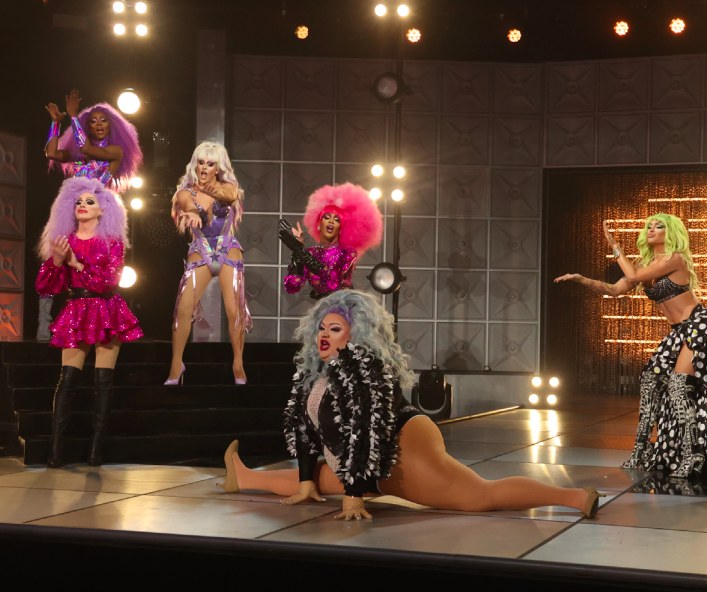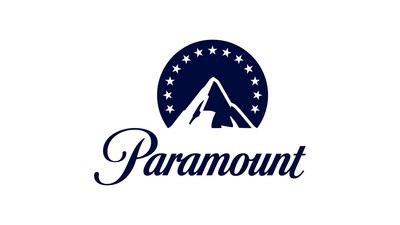Sustainable Production at Paramount
Addressing the environmental impacts of content production is one of our most promising opportunities to improve our overall environmental performance.
Originally published in Paramount's 2021-2022 Environmental, Social, and Govern…
It takes considerable resources to create the alternative worlds of our films and television shows. From scripted features to unscripted reality shows, documentaries, and live events, the filming process is resource-intensive. We use significant amounts of energy and source a range of materials to build and operate sets, transport people and props to locations, and meet the needs of those working on set. While each production is unique, scripted shows and films tend to require a greater amount of material resources for set building and operation, which is why we have historically focused on sustainability measures for these types of productions. That said, we continue to identify opportunities for more environmentally friendly production practices across our universe of content, and have made efforts to expand sustainable production to other forms of content, including live events, short form, and unscripted content.
While the COVID-19 pandemic spurred increased use of personal protective equipment to keep our teams and talent safe, and resulted in increased waste, there was also a dramatic drop in travel and, in turn, the emissions linked to on-location productions.
And as the world, and our production teams, have adapted to a new normal, some of the COVID-era shifts have become more permanent. For example, many of our editors have been able to shift to a work-from-home model, and we plan to close two large-scale, on-site editing bays at our 345 Hudson Street office location in New York. This will allow us to reduce our office footprint and donate or recycle digital editing equipment used there.
Throughout 2021, we continued to streamline practices across the content production chain, from digital onboarding to paperless scripts. This process helps minimize environmental waste in some cases – for example, with the shift away from paper-based payroll onboarding to a digital system – and helps create stronger business continuity through process standardization.
Expanding Our Use of Green Production Practices
The Green Production Guide (GPG) – a voluntary best-practices handbook of environmental impact mitigation strategies – has been one of our most effective tools in our sustainable production work. The GPG provides a comprehensive set of guidelines for reducing energy use, GHG emissions, waste, and other environmental impacts of production. Over the past five years, we have continued to expand our use of the GPG, which was developed by the Sustainable Production Alliance and the Producers Guild of America.
While the use of the GPG and guidelines developed by albert, a sustainable production initiative responsible for the UK version of the GPG, Paramount’s production management and operations teams have been steadily working to introduce and formalize the guidelines across our global operations. This will eventually include mandatory green production training globally, including across all VIS studios.
In 2021, 34 productions across various domestic brands implemented the GPG, up from 25 in 2020. VIS UK, Paramount’s international studio, earned albert certification on 33 projects for their efforts to reduce carbon emissions on set. This included 70% of projects produced for Channel 5 in 2021. An albert Certification requires the completion of a Carbon Action Plan that includes compulsory offsets of all emissions. Both VIS UK and Channel 5 strongly encourage any studios producing content on Paramount’s behalf to use albert guidelines, and plan to make this a requirement going forward.
Optimizing Set and Production Resources
Across the industry, the construction and disposal of sets are among the most significant environmental impacts associated with content production. In 2021, we reinforced our focus on set waste through several initiatives and processes. Wherever possible, we deploy dedicated teams to handle post-production assets and work to rent or reuse set materials, rather than build from scratch.
The Lost City production donated all lumber and foam used on a set to workers and vendors in the Dominican Republic in 2021. Joe Pickett reused materials across multiple sets and used materials that were rented or obtained from thrift stores wherever possible.
In early 2022, our production team rolled out a new data platform that helps to streamline production resources to minimize waste. The platform uses metadata tagging across our productions to identify opportunities for resource- sharing, based on need and location. For example, a production manager can identify other shows and films working in the same geographic area to potentially reuse set materials or other assets. The system also allows the production management and operations team to identify staffing shortages and help efficiently deploy resources to areas that need additional help.
Waste Diversion and Recycling
Reducing and diverting waste generated by our productions and events not only saves resources but reduces GHG emissions associated with the production and disposal of materials. In addition to reusing or donating sets and other materials, we are working to limit single-use materials and divert waste through recycling and composting programs.
For example, the Long Slow Exhale production diverted 134 tons of waste from the landfill by recycling and rented or reused set materials wherever possible.
Paramount Pictures: Waste Diversion* By the Numbers in 2021
For Paramount Television Studios and Motion Picture Group Productions
- $142,830: Total value of donated materials
- 56%: Average waste diversion rate per production
- 1,057: Average number of reams of paper per production
- 51%: Average percentage of recycled paper used per production
Waste Diversion at RuPaul’s Drag Race
In 2021, the Paramount Multi-Platform Group (MPG), which creates short-form content like promotional clips and commercials, developed a sustainable production program specifically for its division. Short-form content has its own set of challenges and opportunities when it comes to sustainable production, since shoots only last a few days or even a few hours. With such a quick turnaround time, individual shoots lack the planning time and resources to implement innovative sustainability solutions. Despite these challenges, the MPG team spent the second half of 2021 building a strategy to incorporate specific green production guide practices that they can control. The group is developing goals around waste diversion and donation metrics and has started an educational rollout for its members. This training highlights simple on-set behavioral changes such as partnering with green vendors, recycling and composting, reducing plastic use, and utilizing Paramount’s existing non-profit relationships for food and asset donations. The group has also brought on a project-based Sustainability Coordinator to increase the scalability for sustainability across the group’s productions.
With the help of sustainability consultants, MPG piloted the program at a promo shoot for RuPaul’s Drag Race and achieved an on- set diversion rate of 50% during the shoot. Including post-production set donations, this number increased to 87%, equal to over 1,800 pounds of material diverted from the landfill. The vast majority of this was comprised of set material, which we donated to Eco Set, a Los Angeles-based business that promotes set reuse in the entertainment industry. In April of 2022, MPG executed its first sustainable set in Los Angeles for two days of production work for Nickelodeon’s That Girl Lay Lay (season two) and Tyler Perry’s Young Dylan (season three). The production had an 81% landfill diversion success rate, which included nearly 80 meals’ worth of food donated to Los Angeles food banks via Paramount’s partner Rock and Wrap it Up.
Sustainable Procurement
Where we must use new materials, either for set construction or for other on-set uses, we aim to ensure they are responsibly sourced and environmentally friendly. Many of our productions source 100% Forest Stewardship Council-certified plywood and other more responsible products, such as materials with recycled content or recyclable or compostable food service items. On select productions, where central water dispensers could no longer be used, we purchase water in aluminum cans instead of plastic. In some of our catering contracts where appropriate, we include a policy to ban polystyrene foam food and beverage containers, limit plastic use, train staff to compost, provide fuel data, and provide a point of contact for food donations.
Donating Meals and Assets
We work to ensure excess food and set materials are donated to local organizations and others who can use them. In the U.S., our centralized food recovery program helps route extra meals from productions and events to local food banks through partnerships with Rock and Wrap It Up for off-lot donations and the Hollywood Food Coalition for donations from our Paramount Lot. We also work with various partners internationally to distribute excess food. In addition, we donate surplus set furniture, props, construction materials, and other assets to Habitat for Humanity, the Salvation Army, and Goodwill.
Notable food donation events in 2021 included (value in pounds)
- Approximately 10,600 from season five of Bull.
- Nearly 1,800 from the 2021 MTV Movie and TV Awards.
- 700+ from the Kids’ Choice Awards.
Collaborating With Industry Partners
We’re working to scale up sustainable production practices across the industry. We are an active partner in the Sustainable Production Alliance (SPA), a consortium of Hollywood’s largest production companies dedicated to advancing sustainability in film and television. Paramount Pictures is also a lead partner in SPA’s Sustainable Entertainment Education Series (SEEDS), which has produced episodes on topics like racial, climate, and social justice, and sustainability in student film productions. Additionally, Paramount Pictures is one of the founding advisors of the Green Film School Alliance, a collaboration led by leading film schools to integrate industry- level sustainable production practices into their programs.
We’ve joined other collaborative initiatives such as the United Nations’ Sports for Climate Action and the Hollywood Climate Summit and international film commission projects including the British Academy of Film and Television Arts (BAFTA) albert sustainability directorate, Creative BC’s Reel Green initiative, Ontario Creates’ Green Screen, and Quebec’s inaugural Rolling Green.
Learn more in in Paramount's 2021-2022 Environmental, Social, and Governance Report




